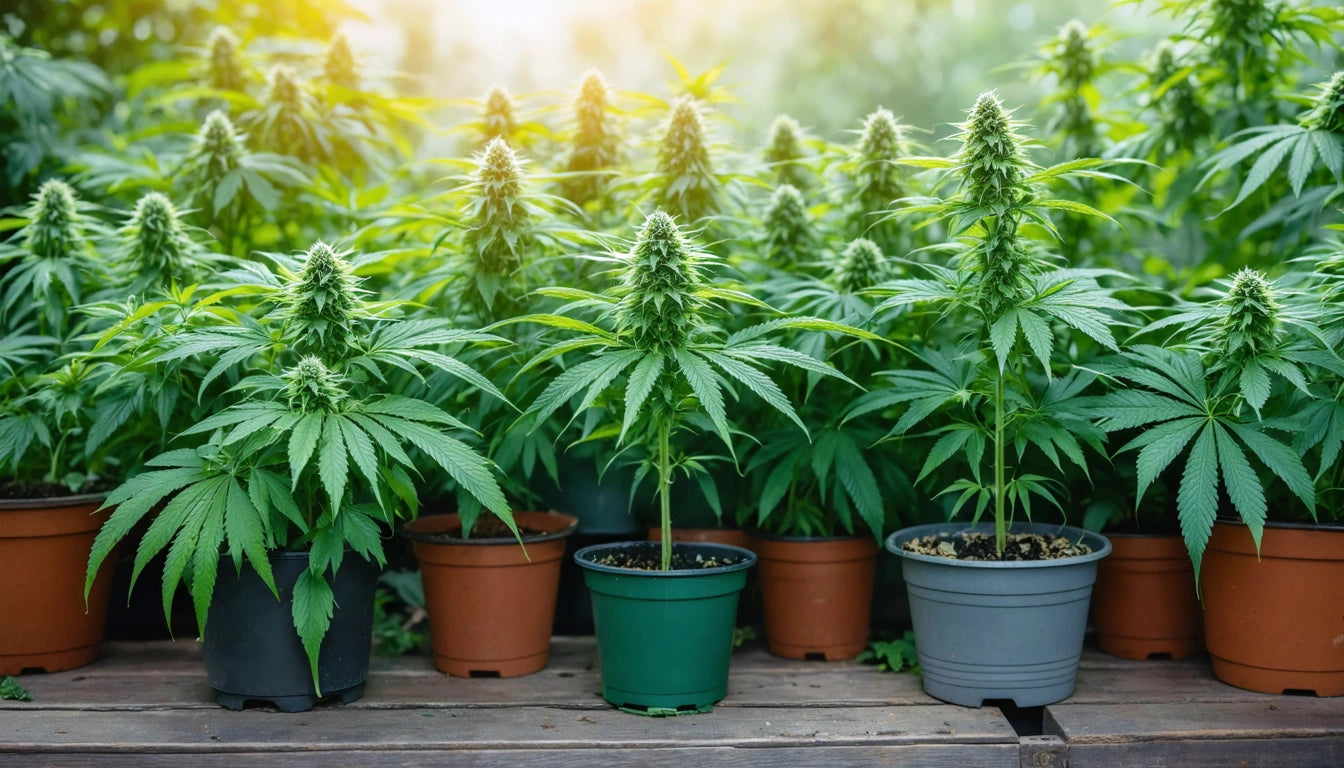Table of Contents
Understanding the FTC Green Guides: A Comprehensive Overview
Environmental marketing claims have become increasingly important as consumers seek more sustainable products. The Federal Trade Commission (FTC) developed the Green Guides to help businesses make truthful environmental claims and avoid misleading consumers. For cannabis businesses invested in sustainability, understanding these guidelines is essential for compliant marketing and packaging practices.
What Are the FTC Green Guides?
The FTC Green Guides, officially known as the Guides for the Use of Environmental Marketing Claims, provide a framework for businesses making environmental benefit claims about their products or packaging. First introduced in 1992 and most recently updated in 2012, these guidelines help marketers avoid making deceptive claims that could mislead reasonable consumers.
The Green Guides are not regulations or laws themselves, but they reflect the FTC's current thinking about environmental claims. The Commission can take enforcement action against deceptive marketing under Section 5 of the FTC Act, using the Green Guides as their standard for evaluation.
Key Principles of the FTC Green Guides
The FTC green guidelines establish several fundamental principles that apply to all environmental marketing claims:
- Specificity: Claims should be clear, prominent, and specific about the environmental benefit being asserted
- Qualification: Broad claims must be properly qualified to avoid deception
- Substantiation: All claims require competent and reliable scientific evidence
- Comparative claims: Must clearly state the basis for any comparison
- Prominence and clarity: Qualifications and disclosures must be clear, prominent, and understandable
When implementing sustainable packaging solutions, such as recyclable mylar packaging options, businesses must ensure their marketing claims align with these principles to maintain compliance with FTC expectations.
Common Environmental Claims and Guidelines
Recyclable Claims
Claims that a product is recyclable should only be made without qualification when recycling facilities are available to at least 60% of consumers where the product is sold. If recycling facilities are limited, the claim must be qualified to indicate the limited availability of recycling for the product.
Compostable Claims
Products or packaging marketed as compostable should completely break down in a timely manner in appropriate composting facilities available to consumers. If commercial composting facilities aren't readily available, the claim must be qualified.
Biodegradable Claims
The FTC green guide states that unqualified biodegradable claims for solid waste products are deceptive unless the entire product will completely break down within one year after disposal. For products destined for landfills, biodegradable claims are generally considered misleading without substantial qualification.
Renewable Materials and Energy
Claims about renewable materials should specify the renewable material, how it's sourced, and why it's renewable. Similarly, renewable energy claims should specify the source of renewable energy and should not be made if fossil fuels are used to manufacture any part of the product.
Certification Seals and Third-Party Endorsements
Many cannabis businesses use certification seals to highlight their environmental commitments. The FTC Green Guides address these specifically:
- Certification seals are endorsements covered by the FTC's Endorsement Guides
- The use of such seals implies a material connection between the business and certifying organization
- Third-party certification doesn't eliminate the need to substantiate all claims
- Seals should clearly convey the basis for certification
When implementing sustainable packaging practices, businesses should be cautious about certification claims. For example, when discussing cannabis cultivation practices, guides like outdoor growing optimization should accurately represent any environmental benefits without overstating them.
Avoiding Green Guide Violations
To avoid violations of the FTC green guidelines, businesses should:
- Maintain thorough documentation of all scientific evidence supporting claims
- Review all marketing materials for potentially deceptive implications
- Ensure qualifications are clear and prominent
- Train marketing staff on Green Guide requirements
- Regularly review claims as products or packaging evolve
The consequences of non-compliance can include FTC investigations, consent orders, and financial penalties. Even using terms like "green" in product names requires careful consideration, as seen in resources about cannabis strain nomenclature.
Implementation Strategies for Cannabis Businesses
For cannabis businesses looking to make environmental claims while remaining compliant with the FTC Green Guides, consider these practical strategies:
- Conduct a comprehensive audit of all environmental claims on packaging and marketing materials
- Develop a substantiation file for each environmental claim
- Create internal review processes for new environmental marketing initiatives
- Consider using Life Cycle Assessments (LCAs) to evaluate overall environmental impacts
- Stay current on Green Guide updates and enforcement actions
As the cannabis industry continues to evolve and environmental consciousness grows, responsible marketing becomes increasingly important. Understanding and implementing the FTC Green Guides helps businesses build consumer trust while avoiding regulatory pitfalls.
When developing educational content about cannabis consumption, such as guides about consumption limits, ensure any environmental claims about the product or its packaging meet FTC standards for accuracy and substantiation.











Leave a comment
All comments are moderated before being published.
This site is protected by hCaptcha and the hCaptcha Privacy Policy and Terms of Service apply.